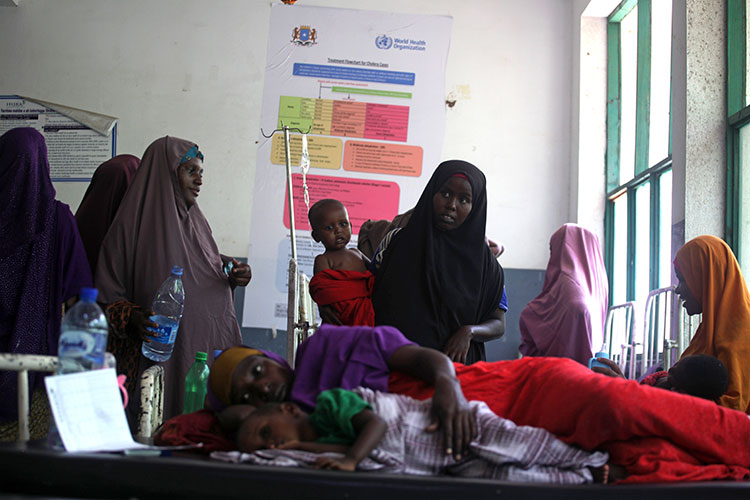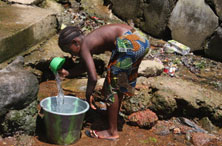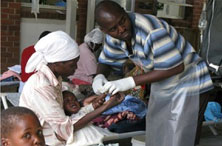 Patients receiving treatment at a cholera treatment centre in Mogadishu, Somalia. Photo: WHO
Patients receiving treatment at a cholera treatment centre in Mogadishu, Somalia. Photo: WHO
Cholera is an acute diarrhoeal infection caused by the bacterium Vibrio cholerae, infecting people most often via contaminated water or food. Every year, cholera causes an estimated 3 to 5 million cases, and 100 000 to 120 000 deaths. The short incubation period (2 hours to 5 days) enhances the potentially explosive pattern of outbreaks.
Cholera is an extremely virulent disease and causes acute watery diarrhoea in both children and adults. Although three quarters of all patients develop no symptoms during the 7–14 days long infection, it can kill especially those with weakened immune systems within hours if left untreated. Additionally, even asymptomatic patients spread the bacteria via defecation, which can lead to new infections.
Cholera remains a major public health risk in the Region since the seventh cholera pandemic reached Africa in 1971, and the Region has faced regular large outbreaks in recent years. Major underlying causes of these outbreaks are poor environmental infrastructure, lack of health care services, lack of safe water and sanitation, and increased population movement. Complex emergencies, which affect several countries in the Region, further compound these risk factors.
The exact burden of cholera in the Region is difficult to estimate due to underreporting and weak surveillance systems in some endemic countries. Over the past 10 years, at least 9 out of 22 countries in the Region have reported cholera cases, often in epidemic proportions. Imported cases are often reported in the Region.
WHO works closely with Ministries of Health and health partners to achieve effective prevention and control of cholera. Access to safe water and sanitation, health and hygiene promotion in affected communities, ensuring quality health care and rebuilding strong health systems are among the key areas of intervention. Additionally, immunization of at-risk populations with the oral cholera vaccine is a proven, safe and effective public health intervention.




